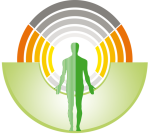M.R.I Question
Most MRI scans are painless, but some patients may feel discomfort from remaining still during the procedure, and some may experience a sense of confinement (claustrophobia). Therefore, it is necessary to provide reassurance or sedation for patients who are expected to feel anxious.
If you feel slight warmth in the part of your body being scanned, there’s no need to worry, as this is normal. However, if the sensation of heat becomes excessive, inform the MRI technician. It is essential to remain completely still during the scan while images are being taken.
For certain types of MRI scans, you may be asked to hold your breath. You will be aware when images are being recorded.
You will be alone in the examination room during the MRI scan. However, the technician can see, hear, and communicate with you through a two-way intercom system. At the Tabesh Imaging Center, if you need someone to accompany you in the MRI room, this can be arranged with the relevant supervisor.
No. Since MRI imaging uses a magnetic field, it is not harmful to the body.
CT Scan Questions
In certain cases, your doctor may recommend a CT scan with contrast injection. In such cases, an IV line will be placed in your hand, and the contrast material will be injected into your body during the scan. Your body may react to the CT scan contrast material, though most reactions are mild and result in a rash or itching. In rare cases, an allergic reaction can be serious and even life-threatening. Therefore, if you have a history of reactions to injectable substances, or allergies to seafood or other medications, inform the reception staff during admission so that anti-allergy medications can be prescribed for you.
If you are pregnant, inform your doctor. Although it is unlikely that the radiation from a CT scan will harm your baby, your doctor may recommend another type of examination, such as an ultrasound or MRI, to avoid exposing the baby to radiation. At the low doses of radiation used in CT imaging, no negative effects have been observed in humans.
Ultrasound Questions
Ultrasound uses sound waves to create images of various parts of the body on a monitor. Ultimately, the interpretation of these images by a specialist radiologist is provided to the patient and their treating physician in the form of a report.
No. This method uses ultrasonic waves.
It is used to diagnose certain conditions. For example, ultrasound is used for diseases related to the liver, gallbladder, kidneys, spleen, pancreas, appendix, bladder, uterus, ovaries, prostate, thyroid, breast, testicles, and some joints.
For certain abdominal ultrasounds, individuals must fast for eight hours prior to the examination. Eating affects the digestive system, which can interfere with the ultrasound results.
Mammography Questions
For a mammography, the breast tissue needs to be compressed to some extent. This may cause slight discomfort in some individuals who have painful breasts due to cysts or other reasons.
Compressing the breast is necessary to spread out the soft tissue inside and make any potential abnormalities more visible.
No, the pressure applied is only enough to spread the internal breast tissue slightly and will not cause any issues for potential abnormalities in the breast.
Yes, mammography can be performed during breastfeeding. However, it is preferable to breastfeed or pump milk before the mammography to improve the quality of the images.
Women aged 40 and above, and women with first-degree relatives (such as a mother or sister) diagnosed with breast cancer, should start annual mammograms from age 35. They should also bring the results of their previous mammography for subsequent scans.
Women with fibrocystic breast tissue are more likely to experience pain. To reduce discomfort, it is better to schedule mammography after menstruation.
Due to the sensitivity of implant tissue and the risk of rupture during mammography, it is essential to ensure the implant is intact before the procedure, as the pressure applied during mammography could cause silicone or fluid to leak.
The X-rays used in mammography cannot effectively pass through silicone or saline implants to show the breast tissue above and below the implant. This means that the portion covered by the implant is not visible in the mammogram.
The mammography machine at Tabesh Imaging Center is a Philips MicroDose, designed to expose the patient to less radiation. This is important because high levels of X-ray radiation can itself be a factor in triggering or causing breast masses or tumors.
Note: If the radiologist observes anything suspicious, such as a mass, in the mammography images, the treating physician will be informed to determine whether a biopsy is necessary.
The report will be provided to the patient within a maximum of 24 hours after the mammography.
Bone density Question
No, this test is performed as a scan and involves no intervention or pain. Additionally, the machine is open, so individuals with claustrophobia will not face any issues.
According to global standards, bone density tests are conducted on specific areas. If knee or neck pain is due to osteoporosis, this will be detected in the scan.
No, the radiation level in a bone density test is generally low and poses no harm to individuals, including children, except for pregnant women. Furthermore, the machine at Tabesh Medical Imaging Center is designed to minimize the radiation exposure to the patient as much as possible.

